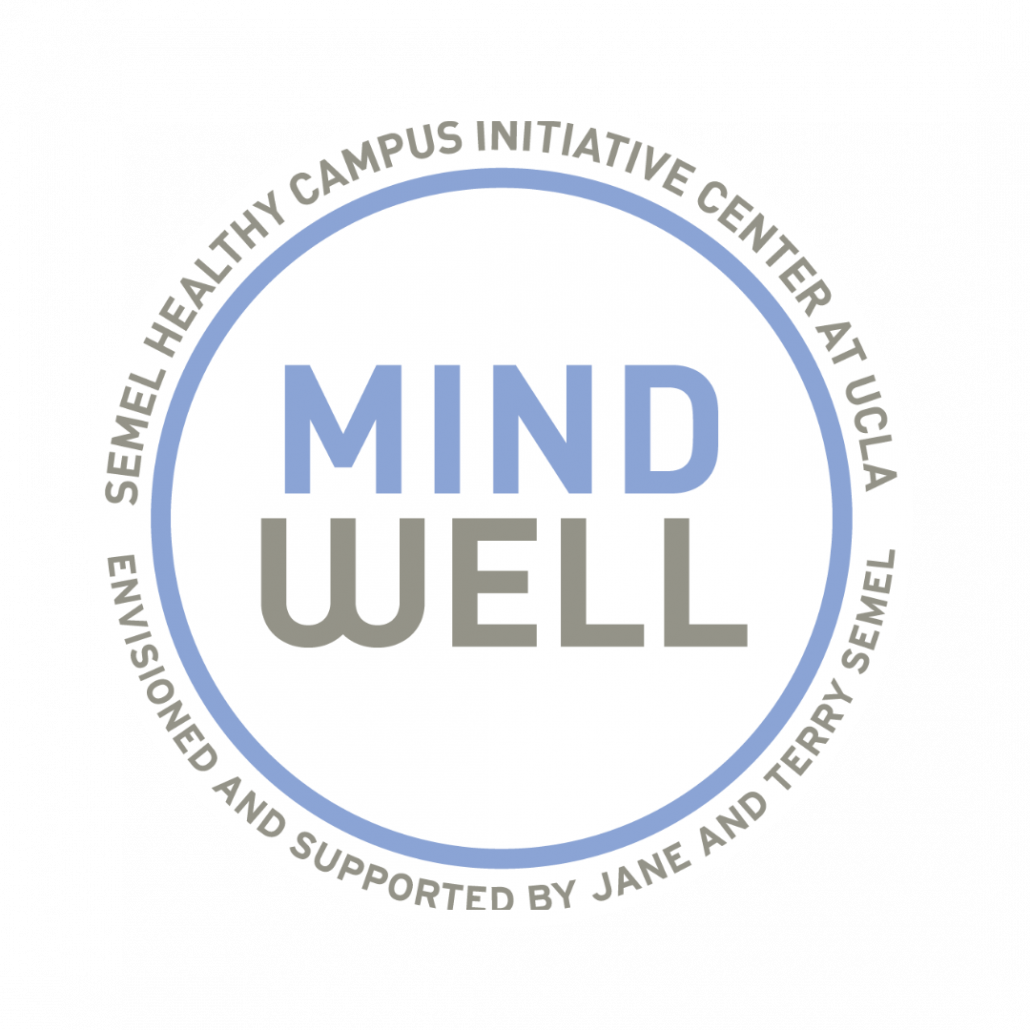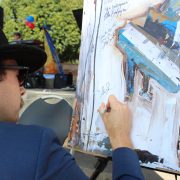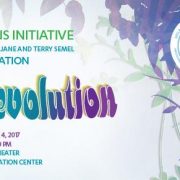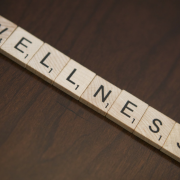The Piano Project Launch: Reflections from Jeremy Barrett
From dodging flyers to indulging in table-side snacks, traversing BruinWalk is a quintessentially UCLA experience. On January 30th, a new tradition was established. Nestled behind the trees at the top of Bruinwalk is a piano anyone can play. This piano has inspired spontaneous performances, beautiful music, and a sense of peace and relaxation. And it’s not the only one. There are four pianos scattered throughout campus, located by Bruin Plate, Covel Commons, the Luskin Conference Hall, and of course- Bruin Walk. This effort was driven by Jeremy Barrett, a UCLA student with a vision to build community through music.
Here’s Jeremy in his own words, explaining his journey to launching the Piano Project in a speech he gave on the January 30th launch:
My fellow family of UCLA, I am happy to join with you today in what may be one of the greatest demonstrations of building community through music that our campus has ever seen, setting the path for a healthier future and growing prosperity. We are fortunate to be students at this time in UCLA History as we celebrate the 100th year anniversary of our beautiful campus.
My name is Jeremy Barrett, and I am the director of the UCLA Piano Project.
Several months back, the UCLA Piano Project was nothing but an idea. After a quick meeting in his office, Chancellor Gene Block encouraged me to reach out to some of our exceptional staff and faculty to make them aware of this special project I was orchestrating. I believe that most students in our school are passionate about music, and while many of them have some basic ability to express themselves musically, they have limited spaces to do it. I fear that some kids at UCLA end up feeling alone because of the high admission standards; and expressing themselves, interacting and feeling part of it all, are often difficult.
I wanted to do one small thing to help students connect, and because my passion is music, I created what I believe is an effective way. After great effort I finally got Chancellor Gene Block, Dean Smith of the Schoenberg Music Building, Jane Semel, Dr. Wendy Slusser, Peter Angelis and many more to agree with me. We worked tirelessly to install publically accessible pianos around campus in order to create a higher sense of family in the UCLA community.
Originally, I envisioned our first piano to be right outside of the Schoenberg Music Building. However, this was not available because of many different reasons. After building relations with Dean Smith of the Schoenberg Music Building, she eventually told me that if I find a LOCATION for the piano, then the Schoenberg Music Building will be willing to donate pianos to the cause. Now let me tell you something; location scouting at this school, is not the easiest thing in the world. But with Dean Smith’s agreement, I had my goals set…. We now have Four Pianos donated from the Schoenberg Music Building across UCLA fostering spaces of music, collaboration, and community. Thank you Schoenberg!
After, Peter Angelis of Housing and Hospitality has said: “Since they’ve been installed, impromptu performances have been non-stop and watching the social interactions of passersby with the pianists have been heartwarming. The pianos have brought a higher level of community and wellness to the Hill, and one that makes me wonder how we could have gone so long without the beautiful instruments.” I couldn’t agree more. Thank you Peter.
One of the goals of the project is to revive the atmosphere of college universities that was present before the internet, where instead of iphone games and instagram, the most enjoyable way to invest your time was conversation and face-to-face communication, which is something I am a firm believer in.
After months of orchestration, I am beyond excited to open our Fourth Public Piano that is located aside BRUIN WALK by the Student Union behind the Student Activities Center. This piano is available for ANYONE to play ANYTHING their heart desires. We envision performances of all types and levels, but most importantly, we envision a “space” where our diverse student body will congregate, break down barriers and generally use the A-political Universal language of music to talk to each other, build friendships and make a better place here at UCLA and even the world in general.
Today, I offer you something that is more precious than gold; and that’s Community. This God-given nation was founded upon the belief that all men and women are created as free individuals; We as a people must emphasize unification in order to reach our highest potential and bring the highest potentials out of others. Imagine what we can accomplish as not just free individuals, but free individuals together. The UCLA Piano Project is dedicated to this pledge of diversity, freedom, and companionship.
UCLA Basketball Coach John Wooden once said, “Make Everyday Your Masterpiece.” For a piano player to make a masterpiece, it requires practice and dedication. In the same way, we as a people must dedicate our hearts and souls to our nation, and practice the creation of peace and community. We have the opportunity to come together here at the #1 public university in the NATION as a collaborative whole to achieve our best potential selves; Are you ready to make everyday your masterpiece?
This piano is a lot more than just an instrument of tune; it is an instrument of peace. As we encourage this peace to UCLA Students, who are in line to be the future leaders of our nation, I believe we are set for greatness. Let this project not only serve as an inspiration for us to build community in UCLA, but inspire companionship in Los Angeles, and in California, and in America, and even the world!
Now, let music sing from the steps of Bruin Plate. Let music sing from the outstanding Sunset Village. Let music sing from the brand new, captivating Luskin Conference Center. And finally, let music sing loud and mighty from the great paved hills of Bruin Walk.
Thank You!



